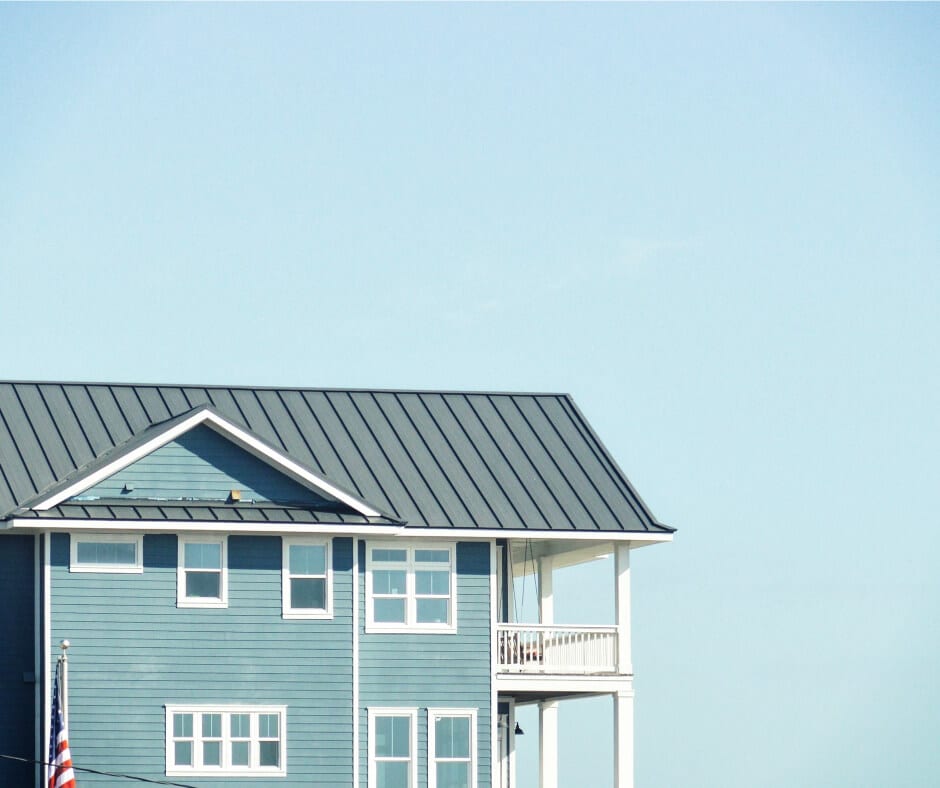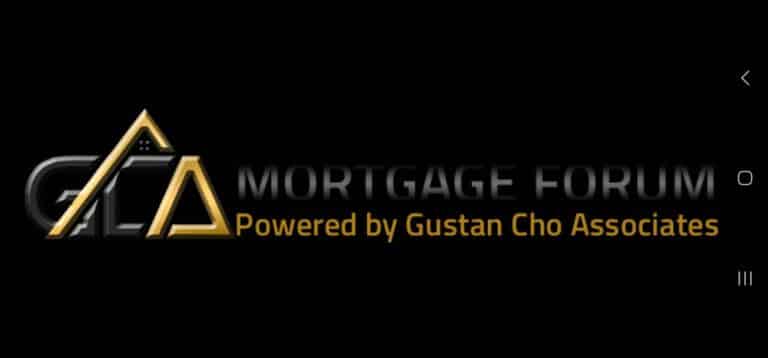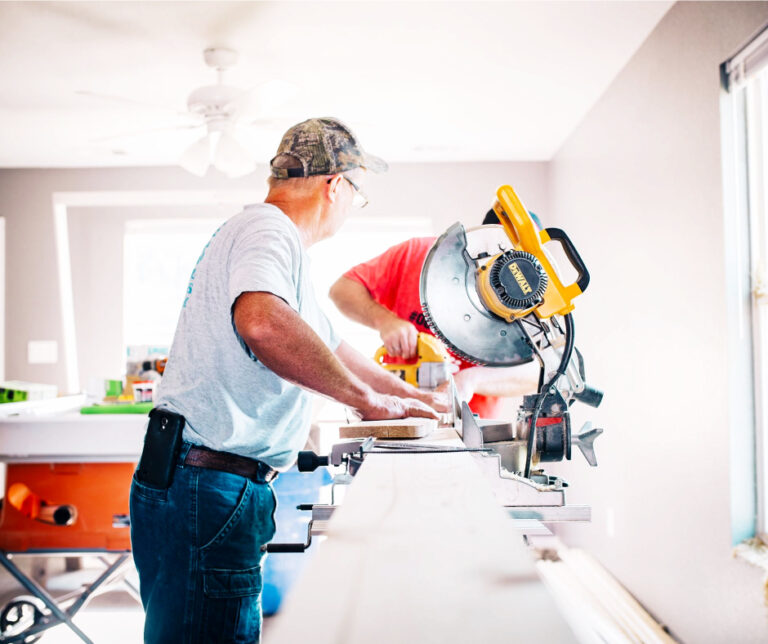How To Buy a Second Home While Owning First
In this blog, we will be covering for homeowners how to buy a second home while owning first. We will cover some creative ways of keeping your first home and being able to affect a vacation home or investment home. owner-occupant primary home. Generally, most people will sell their home and buy a second home simultaneously.
There are other cases when a homeowner will live in the original owner-occupant primary and purchase a second home. Other homeowners are taking money out of the stock market due to the uncertainty and volatility of the economy. In the following sections, we will cover how to buy apartment complexes and insurance.
When Is The Right Time To Buy Real Estate
Determining the right time to buy real estate depends on various factors, including your financial situation, market conditions, personal goals, and economic outlook. Here are some considerations to help you determine when might be the right time for you to buy real estate:
- Financial Preparedness: Ensure that you are financially prepared to buy real estate. This includes having a stable income, a good credit score, a sufficient down payment, and the ability to afford mortgage payments, property taxes, insurance, and maintenance costs.
- Market Conditions: Monitor local and national real estate market trends to identify favorable conditions for buyers. Look for signs of a buyer’s market, such as low housing inventory, declining prices, and low mortgage interest rates.
- Personal Circumstances: Consider your circumstances and lifestyle goals when buying real estate. Factors such as job stability, family size, long-term plans, and desired location can influence your decision.
- Interest Rates: Pay attention to mortgage interest rates, which can significantly impact your purchasing power and monthly mortgage payments. Low interest rates may make it more affordable to buy real estate, while high interest rates can increase borrowing costs.
- Seasonal Trends: Be aware of seasonal trends in the real estate market, as buying activity may fluctuate throughout the year. Spring and summer usually witness increased activity in real estate transactions. Still, there may be opportunities to find deals during slower seasons.
- Economic Outlook: Consider the broader economic outlook, including employment trends, inflation rates, and economic growth projections. A strong economy with job growth and rising incomes may support a healthy real estate market.
- Long-Term Investment: If you’re buying real estate as an investment, focus on the long-term potential rather than short-term fluctuations in the market. Seek out properties situated in sought-after areas that offer the potential for both value appreciation and rental income.
- Affordability: Evaluate whether the property you’re interested in is affordable based on your budget and financial goals. Refrain from overextending yourself financially and ensure that you can comfortably manage the property’s costs without jeopardizing your financial stability.
- Market Research: Perform comprehensive market research to evaluate the values of properties, analyze comparable sales, monitor neighborhood trends, and consider potential future developments that may influence property values.
- Consult Professionals: Consult with real estate agents, financial advisors, mortgage brokers, and other professionals who can provide guidance and advice based on your situation and goals.
Ultimately, the right time to buy real estate varies for each individual and depends on financial readiness, market conditions, personal circumstances, and long-term objectives. It is important to thoroughly assess these factors and make a well-informed decision that is in line with your objectives and preferences.
Get pre-approved in just 5 minutes. Click here!
Should I Buy a House Now or Wait?
Historically, real estate has always been the safest investment with values increasing over time. People who never owned real estate besides their owner-occupant home are not investing in investment properties. Homeownership has many rewards. Many people purchase their first home and live there happily for many years. Newbie real estate investors are buying up condos, townhomes, single-family homes, duplexes, co-oops, and two to four-unit multi-family investment homes.
Others live in their first home for a few years and decide they have outgrown it or it just no longer fits their needs. Sometimes, it takes living somewhere for a length of time to figure out what features you would prefer in your home. Or perhaps you will keep your first home, and you are looking to buy a vacation home or an investment property. In the following paragraphs, we will cover and discuss how to buy a second home while owning first.
Click here to buy a house, fill up form with your requirements
How To Buy a Second Home While Owning First and Keeping Both Homes?
Another scenario is that you or your partner need a commuter home as you live far away from your current job that relocated. You could also be looking to move an elderly parent closer or help your college graduate. It is essential to have clear goals when you decide to purchase a second home, as what the property is used for can affect which financial option will be best for you.
How Do Real Estate Investors Make Money In Rental Property
Additionally, the United States IRS may consider your home investment property, not a second home, if you rent it out for more than 15 days. This means that there are tax requirements because it is seen as an investment property.
Going Over Budget How To Buy a Second Home While Owning First
In this section, we will cover budgeting. Can you afford a second home without selling the first? Can you afford a second home? What type of reserves do you have? Do you need to rent the unit out?
A financial advisor can assist you in determining if you can afford a second home, regardless of your intended plans for use. There are numerous ways to calculate if you are financially able to do so. Once you have found a financial advisor, they will look into your finances for indicators of what you can comfortably afford and ask questions such as whether or not your retirement funds are on track.
How Much House Can I Afford?
Can you afford the upkeep and maintenance on another home? We all know that maintenance on your primary property is quite expensive. Imagine having an entirely new property to maintain. Once you purchase a house, all repairs and upkeep are up to the owner. Will the new property have Homeowners Association (HOA) fees? Will you need to rent this home out to afford it financially? If so, this will not be a reliable source of finances to pay for it.
Preparing Your Finances Prior To The Homebuying Process
When buying a second home, it will be different than your first property purchase. The lenders may be more stringent when looking for your finances, and you might need a higher credit score.
It would be best if you considered all costs involved in this purchase. If it is in addition to your primary home, you will have to pay two sets of utilities and taxes. You will need homeowners insurance on both properties. Additionally, as mentioned above, you will need to pay for maintenance and repairs on both. This includes lawn maintenance, snow removal, and general upkeep. This adds up and is quite costly.
What Type of Credit Do You Need To Be Able To Buy a Second House
When you are looking into a second property, as when you purchased your first, you need to have a grasp on what your credit report looks like. With some pre-planning and consciousness, you can correct a lower score. There are three major credit bureaus. They are Equifax, Experian, and TransUnion.
How To Get Your Credit For a Mortgage?
There are several things that affect your score. A credit report takes into account the types of credit and loans you have, the length of time you have had the loans, and your payment history. Your debt to credit utilization is how much debt a person has on their credit card divided by how much available credit you have on that account. Generally, lenders look for utilization of less than 30%.
Boost Your Credit To Getting Lowest Rates and Terms
If you have had delinquent payments, it will show up on your credit report. If this has happened, you can contact the lender and inquire about assistance in catching up. Late or missed payments on your bills is the number one factor in a low credit score. If you see dings on your credit report that are not accurate, you can dispute them through the credit bureau. This may signal an error or identity theft. The process of dispute can take time, so it’s important to know that it exists and give yourself the time to correct this before applying for a second home.
Qualify for mortgage loan in just 5 minutes. Click here!
Fannie Mae Credit Score Guidelines on Conventional Loans
Most lenders will consider a credit score of 620 FICO acceptable for most mortgages. It depends on what lender and type of loan you have, as there are options for individuals with lower credit scores.
Most borrowers have a credit score of around 750 FICO. Fannie Mae, also known as the Federal National Mortgage Association, a mortgage investor, sets the acceptable score for a second home at 640 FICO but requires a down payment of 25% or more. The 25% down payment is more than the typical 20% for first-home buyers. In many cases, it is essential to remember that the lower your credit score, the higher your interest rate.
Debt-to-Income Ratio
Your Debt to Income (DTI) Ratio is the percentage of your gross monthly income that goes towards paying your monthly bills and debt payments compared to your income. Included in this are your monthly mortgage payments, homeowners insurance, student loan payments, car payments, and minimum credit card payments. The typical debt-to-income ratio for a mortgage is 43%; however, when purchasing a second home, lenders will often want to see a better percentage. On conventional loans, the maximum debt-to-income cap is 50% DT.
Down Payment:
As stated above, Fannie Mae requires at least 25% down with second-home mortgages. These are for conventional loans, and Fannie Mae sets the guidelines. With a first mortgage, depending on which loan you go with, the down payment can be 3%-20%, even with no down payment in some scenarios. If you have built up equity in your primary residence, you may be able to borrow it to fund the down payment.
How to get equity from your first home to help pay for your second home
Home Equity Loan and HELOC
These options are considered second mortgages and new loans in addition to your existing ones. Keep in mind that this would mean two payments, with possibly two different lenders. A home equity loan will use the equity in your home to take a lump sum. You will pay this back over a set period, and it has a fixed interest rate.
A home equity line of credit (HELOC) uses a revolving line of credit. This is secured by the equity you have in your home, and you can borrow against it and repay within a “Draw Period .”Once this period is over, you will need to pay it back within a certain amount of time.
Cash-Out Refinance Mortgage
A Cash Out Finance is a primary mortgage and will usually have lower interest rates. You will replace your current mortgage with a larger one, so you can get cash out for the equity you have in your home. Closing costs can be higher for cash-out finance. In the next paragraph, we will be covering financing on Second Home Requirements.
Mortgage Guidelines on Vacation Homes
If the second home will be a vacation home, you must ensure that you meet lender requirements. These can include providing short-term rentals but no use of a management company. Additionally, it can’t be too close to your primary residence as it would not be considered a vacation home. The rule is that the vacation home must be at least 50 miles away from your primary residence in order to be considered a vacation property. You must live on the property for some years, and it must be able to function as a second home and be only one unit.
Financing Investment Properties
A lender will consider an investment property a higher risk due to the possibility that a renter can invest less in maintaining the property and neglecting basic upkeep. There is also the chance that if you plan to rent out an investment property, there will be gaps in tenants. This could mean that you would have trouble making your payments. As stated earlier, a lender will want to see that you are not going to rely on income from the property to make the payment. Additionally, you can not get a VA or FHA loan for investment properties. They are only for primary residences.
Mortgage Guidelines on Jumbo Loans
A Jumbo loan is basically larger than a standard loan. These loans can be used for primary homes, vacation homes, and investment properties. A jumbo loan is a non-conforming loan. This means that this type of loan does not meet the guidelines set to fit a typical loan limit. Limits are set by the Federal Housing Finance Agency, FHFA.
Mortgage Guidelines on Conventional Loans
A conforming (meets the guidelines from Fannie Mae and Freddie Mac) conventional loan could be used for purchasing a second home; however, the home must be suitable to be occupied for all 12 months out of the year. Most lenders will describe a second home as a home that will not be rented out or used as a timeshare; you will live in it for at least 14 days out of the year and is a single-family home.
The home can’t be an investment property, and the owner only must be in control of the property (no management companies). You will need a credit score of at least 620, but some lenders require 725-750. Lenders also like to see significant cash reserves. Again, this is because second properties are riskier for the lender, especially if they are rental properties.
Investment Property Loans
An investment property loan is one that would allow you to produce income from either buying or building a home. You could do this by leasing out the property or by “flipping” it and selling it. Typically, the qualifications are stricter as lenders view investment properties as higher risk. You will be required by most lenders to have 20-30% down. Additionally, the mortgage interest on an investment property is fully tax-deductible. The rental income is taxable if the home is rented for more than 14 days per year.
Government loans are not really an option for a second home mortgage, regardless of how you use the property. These loans include USDA, FHA, and VA Loans. This is because the home would need to be a primary residence and not a second home or investment property.
How To Start The Mortgage Process To Get Pre-Approved
Once you have worked on your credit report, talked with a financial advisor, and decided on which loan will best suit your needs, you are ready to apply. The application process for buying a second home is very similar to your primary residence. However, it is more stringent with requirements. It would be best if you got preapproved for a loan, which will make the process much smoother once you find a property. Preapproval will bring to light any obstacles or issues that need attention.
Get pre-approved in just 5 minutes. Click here!
How To Buy a Second Home While Owning First Mortgage Process
If you start the process fairly early, it can really help you keep things moving. It may also change how much home you think you can afford. If you can only get preapproved for a certain amount, it will narrow your choices for second home ownership. You will need a real estate agent that can assist and advocate for you. Once your agent has helped you find your second property, you will make an offer. Sometimes, the sellers will counteroffer, which will be a negotiation.
Once your offer is accepted, you are on your way to owning a second home! During this time, you will need to have an appraisal and an inspection completed on the property. A home appraisal will ensure that the house is priced right, based on the area, the home itself, and the market value of others homes in the area.
The Home Inspection Process
The home inspection is based on the physical house and is more detailed. This is when any issues come to the front, such as faulty wiring, a lousy furnace, mold, pests, etc. It usually takes about 30-40 days to close, sometimes longer if there are any snags along the way. The closing costs associated with a second mortgage are comparable to a primary mortgage; however, the down payment is typically higher.
Frequently Asked Questions (FAQs)
- Can I afford to buy a second home while still owning my first?
Comprehensively assess your financial situation to determine if you can handle the additional expenses linked with owning a second home, encompassing mortgage payments, property taxes, insurance, maintenance fees, and potential rental earnings. - What are the tax implications of owning two homes?
Consult with a tax professional to understand how owning a second home may affect your taxes, this includes considering deductions for mortgage interest, property taxes, and income generated from rentals. - Should I rent out my second home?
Consider whether you want to rent out your second home to offset costs or generate income. Remember the responsibilities of being a landlord and the potential challenges of managing rental property from a distance. - What type of second home should I buy?
Think about your goals for the second home, whether it’s a vacation property, an investment property, or a future retirement home. Consider location, property type, amenities, and potential resale value. - How will owning a second home impact my lifestyle?
Evaluate how owning a second home will affect your lifestyle, including travel expenses, time spent managing the property, and the potential benefits of having a second home for vacations or retirement. - What financing options are available for buying a second home?
Investigate various financing alternatives for acquiring a second home, like a conventional mortgage, a home equity loan, or a cash-out refinance on your primary residence. Anticipate stricter lending criteria and potentially elevated interest rates compared to your primary property. - Should I consider a vacation rental property?
Assess the potential risks and rewards of owning a vacation rental property, including seasonal fluctuations in rental demand, competition from other rental properties, and the need for ongoing maintenance and property management. - What are the responsibilities of owning multiple properties?
Understand the responsibilities of owning multiple properties, including maintenance, repairs, insurance, property management, and compliance with local regulations and homeowner association rules. - How will owning a second home impact my long-term financial goals?
Consider how owning a second home fits into your long-term financial goals, including retirement, wealth building, and estate planning. Assess the potential advantages and drawbacks of investing in real estate in contrast to alternative investment opportunities. - Should I consult with a real estate agent or financial advisor?
Contemplate consulting with a real estate agent who specializes in second homes or investment properties, alongside a financial advisor. They can aid in evaluating the financial consequences and risks associated with purchasing a second home while maintaining ownership of your first.
Whatever the reason why you may want a second home- vacation property, investment, or a commuter home, there is a solution for you. All it takes is being aware of your financial status and credit score. Take the necessary steps and find professionals to guide you along the way!
You can contact us at Gustan Cho Associates by calling (800) 900-8569 or text us for a faster response. You can also email us at alex@gustancho.com. Our expert Loan Officers are available even during weekends and holidays!
Talk to our expert and get solution for your mortgage loan, Click here!
This blog on how to buy second home while owning first mortgage was updated on February 21, 2024.








